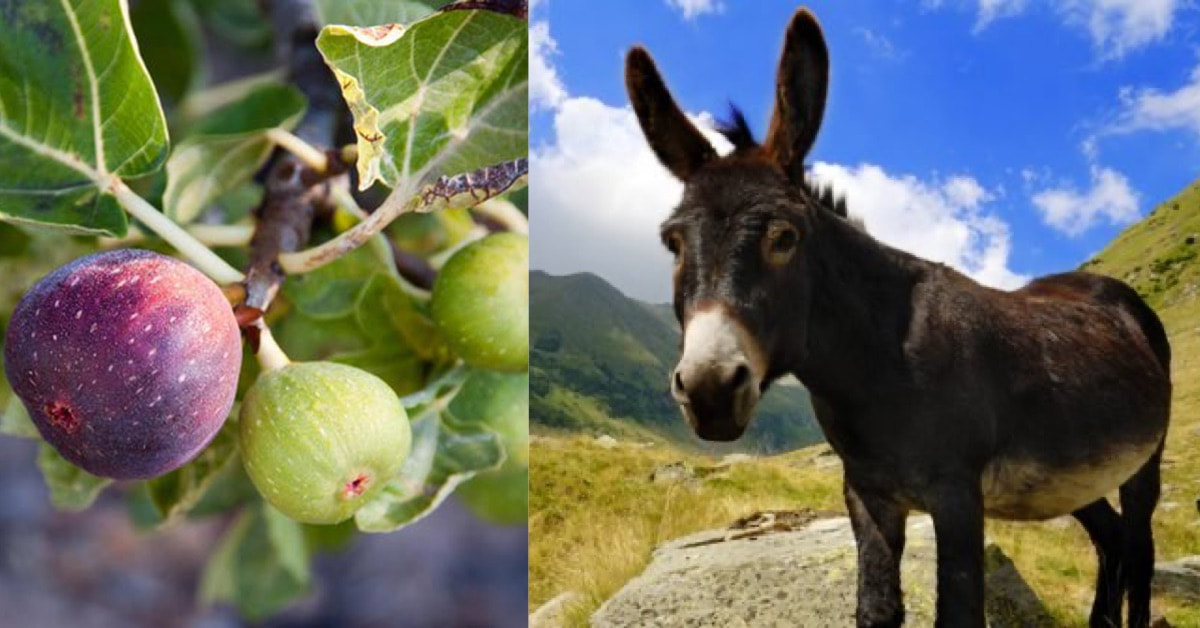|
Fresh Donkeys and Fresh Figs! (Part 2)
Mark 11:11-14, 20-26, 27-33; 12:1-12 Sunday, we looked at the original Palm Sunday. “Hosanna! Blessed is he who comes in the name of the Lord!” Jesus chose to ride a fresh colt into Jerusalem. We looked at what Jesus could have been wanting to communicate by this action. Simply, Jesus completely controlled that animal and the animal completely submitted to the lordship of Christ. In the next passage, Jesus teaches another lesson using a fig tree. We cannot understand the full breadth of the cursing of the fig tree unless we see it contrasted against the backdrop of this submitted creature – the fresh donkey. Jesus was entering Jerusalem again on Monday. He was hungry, saw a fig tree, but found no figs. No surprise here, because fig season was not for another four or five months. The surprise came when Jesus cursed the fig tree! Why would Jesus curse a tree for not having figs when it was not even fig season? Could Jesus have caused figs to grow? Of course! The day prior he caused a fresh donkey to submit. He is sovereign over all of creation! However, he did not cause figs to grow. Why? He wanted to teach the apostles and us an important lesson. Yes. The fig tree represents Israel. God’s chosen people should have borne fruit by now. One may look at it as March/April is too early for figs, but what about last year or the year before that one? They should have received the Messiah and submitted to His lordship. Instead, Israel rejected their promised Messiah. This truth is huge, but Jesus was teaching his apostles a more important truth for the days ahead. The next paragraph detailed Jesus cleansing the temple. Time and again throughout Jesus’s ministry, He confronted the religious elite. Jesus called them out on their vain religiosity as if to say, “You are dressing the part, but you are worshipping in vain.” Jesus repeatedly confronted the scribes, Pharisees, and Sadducees because of their empty ceremonies – their worship without fruit. (By the way, people today can be the same way. People today can seem to have religion, even look like and talk like Christians, and still they lack fruit in their lives.) After Jesus cleansed the temple, He and the apostles left the city. Then on Tuesday, heading back to Jerusalem, Peter notices the fig tree had withered up from the roots. Peter drew everyone’s attention to the fig tree. Jesus then teaches the important lesson to which He had been leading. He said, “Have faith in God.” He continued to speak about having faith, and if we have faith we can say to this mountain to be moved to the ocean, to which the mountain will obey. What does faith have to do with a fig tree withering? Jesus was getting ready to confront the most elite and most religious people in Jerusalem. However, these people worshipped in vain. Jesus submitted Himself to the Father, even to the point of death. Jesus was faithful. He was teaching a lesson and getting ready to model that same lesson. Soon after Jesus’s death, the apostles would too face these elitist groups who worship God in vain. They would need faith. They needed to remain faithful to God. Jesus was preparing his apostles and us for the battle ahead. For Him, the cross waited. For the apostles and for us, our own cross and the mortification of our fleshly nature. We must die daily. And, that takes faith. In remaining faithful to God, we will bear fruit – just as the apostles bore fruit. Read through the remainder of the chapter through chapter 12 verse 12. Notice what Jesus quoted? This is the Lord’s work, and it is marvelous in our eyes. Only God’s work in our heart can bring about the faithfulness that bears fruit. Are you submitted to him today? Pray, God increase my faith. Announcements:
Remember, I love you! I miss you! I’m here for you! Let me know how I can help and how I can pray. Serving Christ by Serving You, Pastor Scott Comments are closed.
|
About Pastor ScottBro. Scott and his wife, Lori, have been serving the Silver Creek Community since June 2019. Archives
May 2020
Categories |

 RSS Feed
RSS Feed
